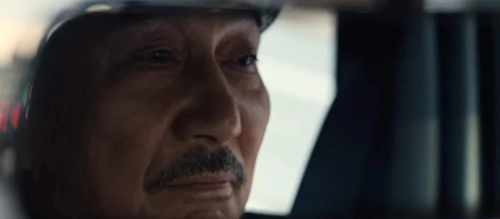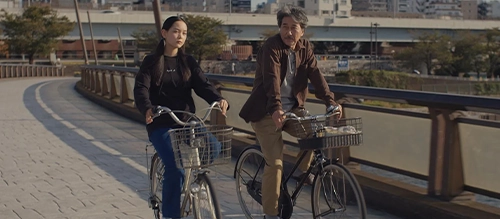Perfect Days (2023) Review

Perfect Days (2023)
Director: Wim Wenders
Screenwriters: Wim Wenders, Takuma Takasaki
Starring: Koji Yakuso, Aoi Yamada, Arisa Nakano, Min Tanaka
Oscar-nominated for Best International Feature, Perfect Days is a gently meditative film about a man who cleans toilets for a living in Tokyo. With skilful direction and a memorable soundtrack, Wim Wenders creates a moving character study and philosophical celebration of the everyman.
The film’s sweet middle-aged protagonist, Hirayama (played by Koji Yakuso, who deservedly won Best Actor at Cannes) finds joy in the small things of his quiet existence. Life as a toilet cleaner is a mundane and (in some people’s eyes) depressing job, yet Hirayama takes comfort in his repetitive routine. He wakes at dawn, carefully spritzes his house plants, and drives to work. He lovingly photographs trees on his lunch break, reads in the evening before going to sleep, and then does it all over again. Hirayama appears content with his peaceful existence, and literally greets each day with a smile.
This mindful and contented attitude to life even extends to the way in which he cleans the public toilets – with a dedicated, even loving approach. It is worth pointing out that these are not your average public toilets – the cubicles themselves are things of architectural beauty.
The arrival of Hirayama’s teenage niece interrupts his reliably solitary routine and offers them both a different perspective and new way of life. A brief reunion with his sister who later comes to collect her hints at (in few words) a painful family past, but it is not delved into.
Perfect Days is one of those meditative films where on the surface not a lot happens, yet the emotions it evokes are powerfully moving and stay with you long after the film. It is an inspiring moral lesson on appreciating the beauty of life and the present moment. There is a lovely line where Hirayama shares a snippet of this philosophical wisdom with his niece: “next time is next time. Now is now.” The minimalistic storyline brings to mind films such as Chloé Zhao’s Nomadland and Celine Song’s Past Lives, with their reliance on poetic visual language over dialogue. Zhao’s Oscar-winning film depicts a similar character study of the everyman/woman, and a contemplative appreciation for the small things in life.

A film with so little narrative requires expert direction, and Wim Wenders skilfully captures one man’s world through memorably artistic shots. The director’s attention to detail reflects Hirayama’s appreciative approach to life, transporting us into the protagonist’s mind by savouring images and lingering over objects that the average person might disregard or overlook. The way the light touches the top of the trees, or the colour of the sky at dawn. This connection with nature even infiltrates his dreams, which are shot in black and white and ethereally mirror images from the day.
The film’s great soundtrack is largely comprised of the 70s rock cassette tapes that Hirayama plays in the car, including The Rolling Stones and Lou Reed (whose song gives the film its title). One of the most powerful moments in the film is when Hirayama drives home to Nina Simone’s “Feeling Good”. The camera remains unflinchingly on Hirayama’s face, which fluctuates between joy and painful sadness – a sentiment he conveys powerfully throughout the film in which he hardly speaks.
In a world where the repetitious nature of life can feel like Groundhog Day, Perfect Days reminds us that there is something new and quietly beautiful to be found in each moment. Overall, the film’s message is one of gratitude for the life we have, and that is arguably one of the greatest messages that cinema can spread.
Score: 23/24
Written by Gala Woolley
You can support Gala Woolley in the following places:
Twitter – @GalaWoolley
Blog – screenqueens.co.uk

